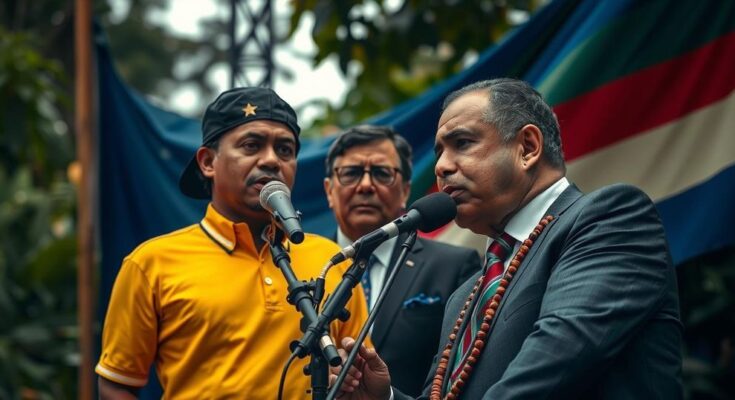Presidents Félix Tshisekedi of Congo and Daniel Ortega of Nicaragua are pushing for constitutional changes that critics argue threaten democracy. Tshisekedi’s reforms could allow him to extend his presidency, while Ortega’s proposals aim to increase his family’s power and control over media. Both sets of changes raise alarms about authoritarianism in fragile political environments.
Political leaders in Nicaragua and the Democratic Republic of Congo are pursuing constitutional reforms that have raised alarms regarding the preservation of democracy in their respective nations. In Congo, President Félix Tshisekedi has initiated discussions to draft a new constitution, citing the current one as “outdated”; however, opposition figures express concern that such changes may facilitate his retention of power beyond constitutional limits. Meanwhile, in Nicaragua, President Daniel Ortega’s proposed reforms seek to augment presidential authority and entrench control over media, which critics claim could precipitate further authoritarianism in a nation already subjected to a crackdown on dissent. These parallel political maneuvers highlight the precarious state of democracy in both countries and the potential implications for governance and civil liberties.
The attempts by political leaders in the Democratic Republic of Congo and Nicaragua signal a troubling trend for democracy in these regions. Historical context shows that constitutional changes often precede power consolidation by sitting leaders, which can unravel democratic structures. In both countries, the judiciary and public dissent have historically been weakened, raising further concerns as leaders propose changes that may extend their mandates and diminish checks on executive power.
The unfolding constitutional reforms in Nicaragua and Congo underscore significant threats to democratic governance in these countries, particularly concerning the potential for increased presidential power and diminished civil liberties. Domestic opposition is mounting in both nations, highlighting a populace increasingly wary of authoritarian shifts. The international community’s response remains critical as these situations develop, and global attention to democratic integrity is essential in preserving the rule of law and human rights.
Original Source: www.firstpost.com




